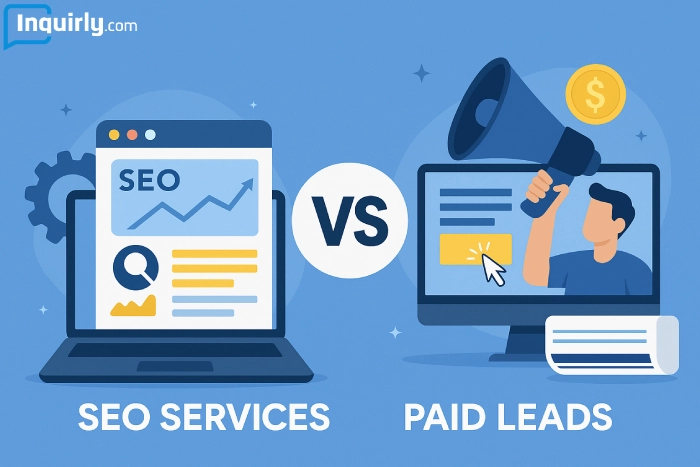Growth in the HVAC industry is expected to increase by a rate of 5% over the next five years. It’s a perfect moment to start your own! In this article, we will guide you to get a better understanding of what the process looks like and what you need to know.
Before we start, let’s take a look at the benefits what HVAC industry brings
The HVAC business isn’t just about fixing air conditioners and installing heaters. It’s an industry full of potential and advantages. Starting an HVAC business could be a sensible choice for a variety of reasons, such as:
- Consistent Demand – weather is something we can’t control, so heating and cooling systems are always in demand.
- Revenue – HVAC services frequently result in long-term customer relationships, which generate an ongoing flow of cash through maintenance and service agreements.
- Growing Market – As technology advances and energy efficiency becomes a priority, there’s a growing market for innovative HVAC solutions.
As we see, starting your own HVAC business is a rewarding journey with plenty of potential, but it takes careful planning. Here are the top 5 steps to get you started on the right foot
🚀 Top 5 Steps How to Start HVAC Business
- Education and Certification
- Business Plan
- Legal Considerations
- Equipment and Supplies
- Marketing and Networking
1. Certification
Before launching your HVAC business, it’s important to obtain the appropriate education and certifications. These qualifications not only demonstrate your competence and professionalism, but they also ensure that you are in accordance with the legal regulations for operating in the HVAC industry in your area.
2. Business Plan
Business plan as a guide to follow. It specifies what services you provide, who your target audience is, how much you will charge, and how you want to expand. By following this path you make right decisions as you grow your HVAC business.
3. Legal Considerations
Starting a business means dealing with rules and regulations. You’ll need to register your business, get permits and make sure you’re following all the local laws. Keep in mind, it’s very important. This keeps you out of trouble and guarantees that you manage your firm properly.
4. Equipment and Supplies
In order to do your job well, you must have the appropriate tools. HVAC requires proper heating and cooling systems, pipes, thermostats and other types of equipment. Investing in quality equipment allows you to provide quality service for your consumers.
5. Marketing and Networking
Marketing and networking are essential tools to make your HVAC firm known to others. You can do it by digital marketing, such as, creating a professional website or using social media to connect with others and involve in your community. Also, attend industry-related events, they are truly the perfect places to network.
.
After establishing your company you might face some challenges with the lead generation, but we got your back. Inquirly suggests all 100% exclusive leads and improved return on investment (ROI).
✍️ Things to Consider when starting an HVAC Business
Starting an HVAC business comes with its own set of challenges and considerations. Here are a few key factors to keep in mind:
- Competition – investigate your local market to get a good idea of who else is offering similar services and what makes them different. This will help you figure out how you can stand out from the competition.
- Finances – prepare a detailed budget and financial forecast to ensure you have the necessary funds to cover startup costs and sustain your business during the early stages.
- Employee Training – If you intend to hire technicians, invest in continuous training and development to guarantee they have the necessary skills and expertise
- Customer Service – be transparent and loyal it will establish trust between the company and clients and also generate favorable word-of-mouth recommendations.
Conclusion
Starting an HVAC business needs dedication, hard work and careful preparation, but the benefits can be well worth it. Following the procedures provided in this article and taking into account the important criteria addressed will put you on track to developing a profitable HVAC business.


